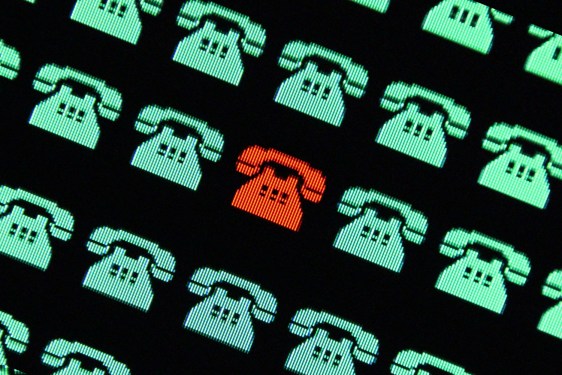Weeks After Initial Exposure, Salt Typhoon Continues to Evade Detection
The U.S. government has confirmed that the China-backed hacking group known as Salt Typhoon remains embedded within some of the largest phone and internet providers in America. This revelation comes weeks after the initial exposure of the long-running hacking campaign, which first came to light in October.
Affected Telecom Giants Struggle to Evict Hackers
In a call with reporters, the Cybersecurity and Infrastructure Security Agency (CISA) disclosed that the affected telecom giants are still grappling with the issue. The primary challenge lies in determining the hackers’ intentions, making it difficult for the companies to effectively counter their presence.
Background on Salt Typhoon’s Initial Infiltration
In October, news broke about Salt Typhoon’s alleged deep infiltration of networks belonging to AT&T, Verizon, and Lumen (formerly CenturyLink), among others. T-Mobile, while targeted, successfully rebuffed the attackers. The unauthorized access granted by Salt Typhoon enabled Chinese hackers to intercept real-time unencrypted calls and text messages, as well as metadata about the communications’ senders and recipients.
U.S. Officials Suspect Widespread Espionage
The U.S. government believes that the industry-wide hacks may be part of a large-scale espionage operation by China. The hackers were found to be targeting not only ordinary Americans but also U.S. officials, presidential candidates, and even systems housing U.S. government requests related to Chinese individuals under surveillance.
CISA and FBI Urge Encryption Adoption
During the call with reporters, CISA and FBI officials stressed the importance of using encrypted messaging apps to prevent communications from being intercepted by hackers or spies. One official noted that encryption is a powerful tool, emphasizing, "Encryption is your friend; whether it’s on text messaging or if you have the capacity to use encrypted voice communication."
Examples of Secure Messaging Apps
Several popular end-to-end encrypted messaging apps offer protection against interception. Signal and WhatsApp are two widely used examples, which ensure that neither the app makers nor any third-party entities can access users’ communications.
U.S. Government Guidance for Telecom Networks
The U.S. government has provided guidance to telecom networks on hardening their systems against Salt Typhoon’s attacks. Each affected company will need to tailor its remediation efforts, making every case unique.
The ongoing presence of Salt Typhoon within major U.S. telecom networks highlights the complexities and challenges involved in countering sophisticated cyber threats. The hacking group’s intent remains unclear, adding to the difficulty for telecom giants in effectively removing them from their networks.
Impact on National Security
The U.S. government’s struggle against China-backed hackers raises concerns about national security. The affected telecom networks’ inability to evict Salt Typhoon underscores the gravity of the situation and the need for strengthened cybersecurity measures across the board.
U.S. Government Officials React to Ongoing Hacking Campaign
CISA and FBI officials have urged Americans to adopt secure communication practices, such as using encrypted messaging apps, to prevent their communications from being intercepted by hackers or spies.
Encryption is Your Friend
In light of the ongoing hacking campaign, CISA and FBI officials emphasized the importance of encryption in protecting against interceptions. They encouraged users to take advantage of end-to-end encrypted messaging apps, such as Signal and WhatsApp, which offer robust protection against interception.
What Is End-to-End Encryption?
End-to-end encryption ensures that only the sender and receiver can access the contents of a message. This level of security prevents any third-party entities, including app makers or hackers, from accessing sensitive information.
Guidance for Telecom Networks
The U.S. government has provided guidance to telecom networks on hardening their systems against Salt Typhoon’s attacks. Each affected company will need to tailor its remediation efforts, making every case unique.
Key Takeaways
- The China-backed hacking group known as Salt Typhoon remains embedded within some of the largest phone and internet providers in America.
- Affected telecom giants are still struggling to evict the hackers due to unclear intentions.
- U.S. officials suspect a large-scale espionage operation by China behind the hacks.
- CISA and FBI officials urge Americans to use encrypted messaging apps to prevent interceptions.
Related Articles
- Senator Warns of National Security Risks After Elon Musk’s DOGE Granted ‘Full Access’ to Sensitive Treasury Systems
- A Brief History of Mass Hacks
- Tata Technologies Says Ransomware Attack Hit IT Assets, Investigation Ongoing
Conclusion
The ongoing presence of Salt Typhoon within major U.S. telecom networks underscores the complexities and challenges involved in countering sophisticated cyber threats. As the situation continues to evolve, it is essential for both government officials and ordinary Americans to take proactive measures in protecting against interceptions and strengthening national security.
Stay Informed
Stay up-to-date with the latest news and developments on cybersecurity threats by following reputable sources and authorities.
